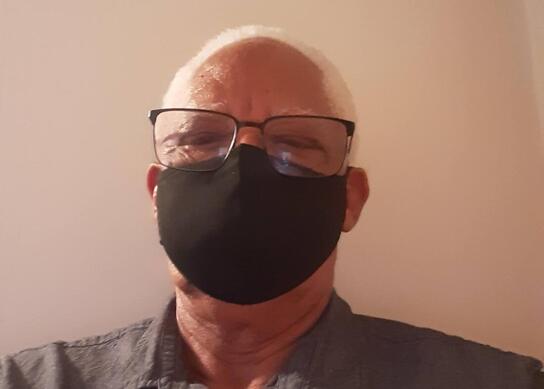Do We Have Freedom or Responsibility to Wear Face Masks
During COVID-19?
Amanda Idleman
The response to COVID-19 by the world has been full of confusion! Due to the unfortunate fact that 2020 is a Presidential Election year, matters of public health have become politicized in ways that have expanded the dividing lines that pull our country apart.
The use of masks has unfortunately become a topic of confusion and contention in the United States.
Interestingly, the American spirit hasn’t changed much throughout history. During the 1918 Spanish Flu Pandemic masks became a part of the strategy employed to limit the spread of the flu. While many complied, many others refused. People complained the masks were ineffective, uncomfortable, bad for business, or unnecessary because officials were not complying with the mandate for masks.
This story sounds all too familiar, right?
If you’re like me, you may be ready to throw up your hands and give up in the fight against COVID-19 because we’re all feeling more than exasperated with the inconsistent and oftentimes contradictory information that is being delivered at lightning-fast speed.
At the start of the outbreak, it was reported that masks were ineffective and should be reserved for medical professionals only. Now, many states including my own have mandated face masks for almost all indoor public spaces. We are all feeling a bit of information whiplash due to this drastic change in approach that came about in just a few short weeks.
Masks have become a political issue, but, truly--wearing them is intended to be a neutral practice to promote public health. There can be a tendency in America for our faith to get intertwined with our politics.
This is a moment for us to break the tether that has tied Christians to a specific political affiliation. Let’s begin to be people that realize that our faith compels us to live in accordance to the Bible rather than offer our unquestioned alliance to specific institutions.
As we all navigate the balance of being responsible citizens and maintaining our sense of freedom, which is vital to the health of our nation, it is important that we make decisions guided by the lens of our faith first.
What then does our faith say about our responsibility to comply with mandates during a Pandemic?
Let’s examine four ways we can apply biblical principles to the question of masks:
1. Do Your Actions Show Love to Our Neighbors?
John 13:34 says, ”A new command I give you: Love one another. As I have loved you, so you must love one another.”
If we are operating by the commands of Jesus first then we must scrutinize the decisions we make through the lens of love. We love not just as we would hope others to love us...but we strive to love in the way we imagine God loves us.
About mid-way through the lockdowns, I realized my anxiety was beginning to skyrocket. My home was becoming my security blanket. I thought if I just stayed home forever, all would be well. Unfortunately, my home and no other force on this planet can make good on that promise. Life comes hand-in-hand with death. And while we do our best to protect the ones we love, we do not have the power to number the days of ourselves or others. Only God has that power.
I realized that if my anxiety spiked to such an intense level in my relatively comfortable lifestyle, that as a society emerging from our homes—we would need to take baby steps. No matter where you fall on the now-robust debate on the effectiveness of masks, we do know that they send a message to those in your community that you are taking others’ health and safety seriously.
Overall, the idea is that when we all wear masks, we help keep more of our germs to ourselves, making them most useful when everyone complies. I protect you and you protect me. When we use the filter of showing love during a pandemic, it seems that the simple act of wearing a mask can show care, compassion, and understanding for those around you who may be struggling with extreme levels of anxiety and fear.
Titus 3:1 says, “Remind them to be submissive to rulers and authorities, to be obedient, to be ready for every good work.” The Bible gives us instructions on how to handle authority in our lives.
Titus tells us we are to be obedient, and 1 Timothy 2:1-4 adds that we should pray for our leaders so we may live peaceful lives.
First of all, then, I urge that petitions, prayers, requests, and thanksgivings be offered to God for all people; for kings and all others who are in authority, that we may live a quiet and peaceful life with all reverence toward God and with proper conduct. This is good and it pleases God our Savior, who wants everyone to be saved and to come to know the truth. (1 Timothy 2:1-4 GNT)
Believers should be diligently praying that God gives all our leaders wisdom in how they implement policies around the pandemic. This is a confusing time, with many “experts” pumping out conflicting data. Many rules have been put in place but not all are necessarily helpful. God’s wisdom is needed to determine which guidelines offer the most help to our hurting world.
Christ-followers should respect the mandates given by our leaders. Thankfully, in a democracy, we do have the chance to respectfully petition our leaders when we feel there is a need. We can use our voices with gentleness, order, and kindness.
Even as we may feel led to respectfully reach out to leaders with our concerns, until the policy changes, we show respect to authority by being obedient to the mandates they have been put in place.
We have the freedom to respectfully communicate in our country to leaders about policy decisions but have the responsibility to comply with mandates made to promote the public health of our communities.
3. Are Your Actions Considerate of the Most Vulnerable in Our Communities?
Matthew 25:40 says, “And the King will answer them, ‘Truly, I say to you, as you did it to one of the least of these my brothers, you did it to me.”
Over the past months we have found that certain groups are more vulnerable to the worst outcomes if infected by the coronavirus. The CDC has noted that the older you are, or if you have an underlying medical condition, you are more likely to die from this contagious disease.
I know as a healthier, younger person with young kids, that wearing masks in public is less than convenient. Now that temperatures are in the 90s and the humidity is sweltering, we all are ready to take our masks off as soon as we leave the store! They fog up our glasses, fall off my kids’ faces, and make it hard to talk to others in public spaces.
However, we still comply with the mandate as a family...because we want to be considerate to the most vulnerable around us.
I know that if the facts had turned out differently and young kids were most susceptible to severe infection, I may be shouting to everyone to wear masks and to keep their distance. Just because our stories may not be as affected by the risk this disease imposes does not mean we don’t have a responsibility to others in our community.
Our freedom should be exercised with the most vulnerable around us in mind.
As a mother, when I go to the pool, I am free to swim in the deep end because I know how to swim well. Yet, because I now have a three-year-old that is vulnerable to drowning, I opt to stay in the shallow end. I love swimming. Sometimes I even miss the carefree days before kids where I could swim alone freely. But because in this stage of life I want to protect my child, I choose to forgo that freedom for her sake.
This is the logic that pushes us to opt towards compliance when it comes to mask-wearing when we are out in our communities. We may feel unafraid, or free to breathe in the air of the supermarket unencumbered. But because in this season we have to be responsible for how our actions can work to spread this disease—we choose to forgo that freedom for the sake of the “least of these.”
4. Do Your Actions Strengthen Your Testimony?
As Christ-followers we are called to be “salt and light” (Matthew 5:13-16) which in essence means that our actions are to be a testimony of love to those around us. As we navigate a time filled with many challenges there are surely others around us who are looking for hope.
“You are like salt for the whole human race. But if salt loses its saltiness, there is no way to make it salty again. It has become worthless, so it is thrown out and people trample on it. “You are like light for the whole world. A city built on a hill cannot be hid. No one lights a lamp and puts it under a bowl; instead it is put on the lampstand, where it gives light for everyone in the house. In the same way your light must shine before people, so that they will see the good things you do and praise your Father in heaven. (Matthew 5:13-16 GNT)
We want our actions and words to be ones that point them to the hope of Jesus.
This is where we can use our discretion as Christ-followers. When we are interacting with others, a new part of our social etiquette includes talks about what others are feeling comfortable with. In this moment, close contact and mask-free conversations could repel people in your life that desperately need to feel comfortable in your midst.
A mask can be a tool to allow us to regain access to desperately-needed human interaction during this turbulent time. Just like we have all had to use Zoom to safely connect, masks can be that next step closer to something that feels more like normal.
If a mask is alienating, unnecessary due to other precautions, or not mandated in your community, then you have the freedom to use discretion for those situations.
Choices about the ways we interact during a pandemic need to consider how our actions will be received by others. Opting to do what brings the most comfort to your community is a worthwhile sacrifice. Especially if it leads to you being able to be a testimony to someone in desperate need of encouragement in this very isolating season.
Our responsibility is first to Jesus, and how we are being his hands and feet during this dark time.


 RSS Feed
RSS Feed